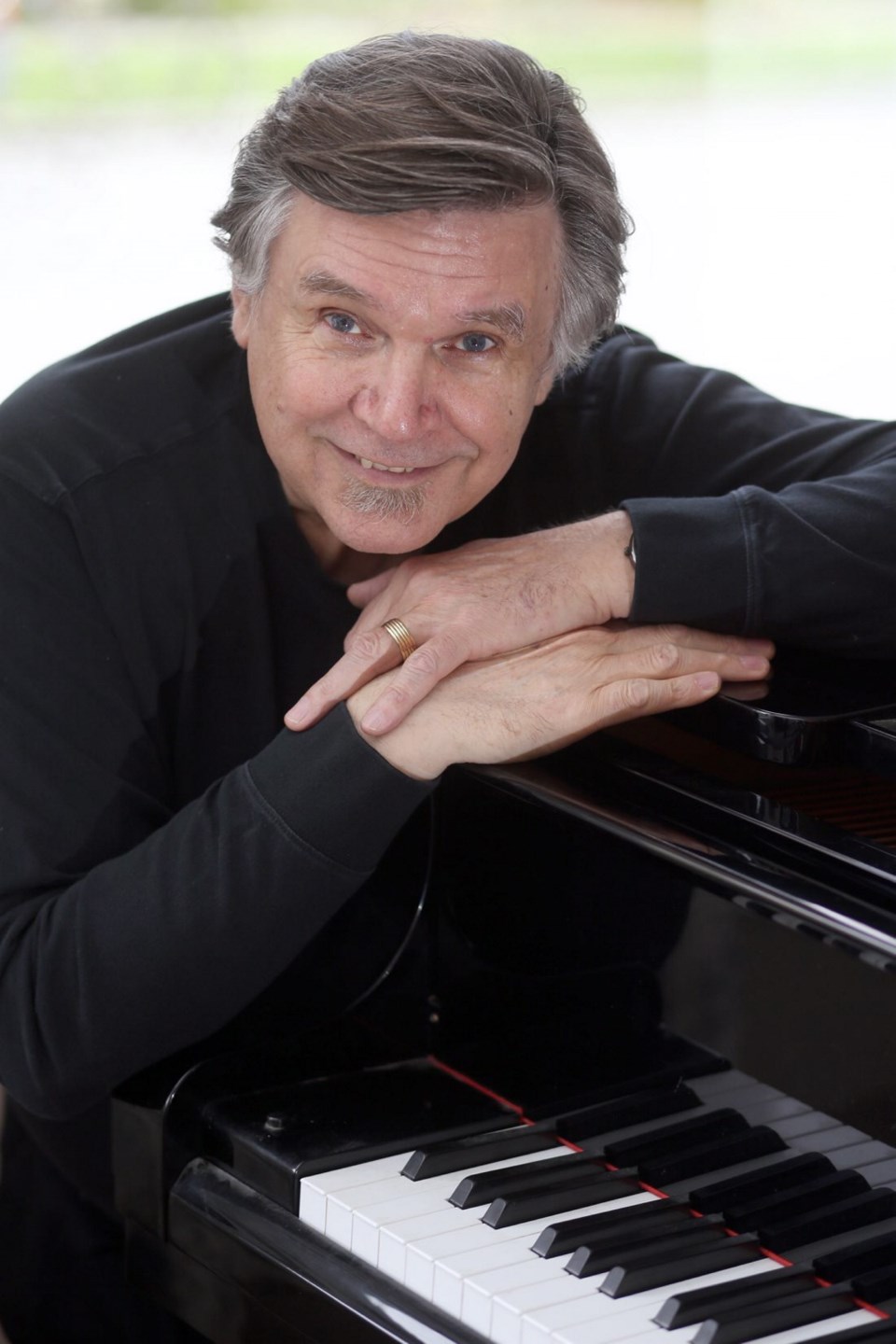And then there was the time David Vest was shot at.
He’s had plenty of other roadhouse adventures, of course: knife and bottle fights; someone dying in a washroom; and near-death experiences with trains.
But this time, Vest — the Alabama-born piano player who relocated to Victoria in 2004 — was telling of the time he and a buddy were leaving the Chicken Shack, a club by the Tennessee River. This was decades ago, when 70-year-old was a young buck.
It was 3:30 a.m. Suddenly, for some unfathomable reason, strangers in a car pulled their guns on them. So Vest and his pal jumped into their car, sprayed gravel, and high-tailed it.
“They drove behind us, leaning out the window, shootin’ like Bonnie and Clyde,” said Vest, who retains a soft Southern drawl. “I’m not kiddin’. You could hear the bullet hit the big, thick cottonwood trees.
“All my life I’ve wondered: Who did they think I was? And what did that guy do?”
Victoria-based Cordova Bay Records has released Vest’s new album, Roadhouse Revelation. A mix of rock ’n’ roll, gospel-inflected soul, boogie woogie and blues, the disc is inspired by his early years playing roadhouses in the American South. In the late ’50s these were blue-collar venues where people might eat a meal, get liquored up and dance.
Vest — an amiable storyteller who lives with his wife in James Bay — recalled Pappy’s Club, a roadhouse outside Birmingham. You’d get to it by driving up a gravel road. Pappy’s was like a truck stop with a lunch counter. But if you walked through the swinging door, there was a club section boasting a bandstand.
“We had to play eight hours a night, eight to four. Forty-five [minutes] on, 15 off,” said Vest, who was just 16 at the time. “We’d play every song we knew twice. And then I’d play the guitar, and the guitar player would play the drums.”
That band was Gerry Woodward and the Esquires. Back then, they played what the people wanted: country, soul and rockabilly.
Some of the Esquires rose to prominence. Barry Beckett, who played Hammond B-3 organ, later co-founded the legendary Muscle Shoals Rhythm Section (which backed everyone from Aretha Franklin to Lynyrd Skynyrd). Esquires saxophonist Ronnie Eades, another Muscle Shoals member, went onto to play with Elton John and Bob Dylan.
Pappy’s was a rough joint. Vest recalls the time a patron died of a heart attack in the women’s washroom. When her worried husband tried to enter, bouncers clubbed him down.
Then they discovered the dead woman.
“And they apologized to the husband?” I asked.
“No,” said Vest, “they threw him out.”
The capper was when an ambulance crew arrived. As they left with the body on a stretcher, attendants were detained by the barman, who taught them a new card trick he’d learned.
Roadhouse Revelation opens with Vest’s tune Freight Train Rolling, a Jerry Lee Lewis-style rocker with a thunderous bass line and a shuffling beat (laid down by Mike Fitzpatrick of the Downchild Blues Band).
The song’s inspiration is the time Vest toured to a gig in Bow Island, Alta. Visitors to Bow Island are greeted by a 5.5-metre statue of the town mascot, Pinto MacBean.
Anyway, the man driving the van was Jimi Bott, the drummer for the Fabulous Thunderbirds. A train track runs through the middle of Bow Island. As they approached the track, Vest noticed (1) a train was approaching, and (2) Bott wasn’t slowing down.
“Jimi said: ‘We can beat that!’ and he put it to the floor. I had to rassle the wheel away from him. We would never have beat that train. It’s was a comin’ like full speed,” Vest said.
Another song on his album, Streetcar, is a tribute to his grandfather, who worked for a shoe company. Vest’s father was an autobody repairman. These occupations were a significant step up for a family descended from sharecroppers who “walked behind a mule every day.”
So what does one learn after 50 years of playing music professionally? What is the greatest lesson?
Vest says it’s simple. Those folk who say they express their feelings through their music? They’re on the wrong track. The important thing is not how you feel when you’re playing. It’s how people feel when they’re listening to you.
“It’s like all being part of a community,” he said. “And you’re playing a role in bringing people together.”
David Vest and his band will perform a free show at Centennial Square on Sunday, June 22, 2:45 p.m., as part of the Victoria International Jazz Festival.
